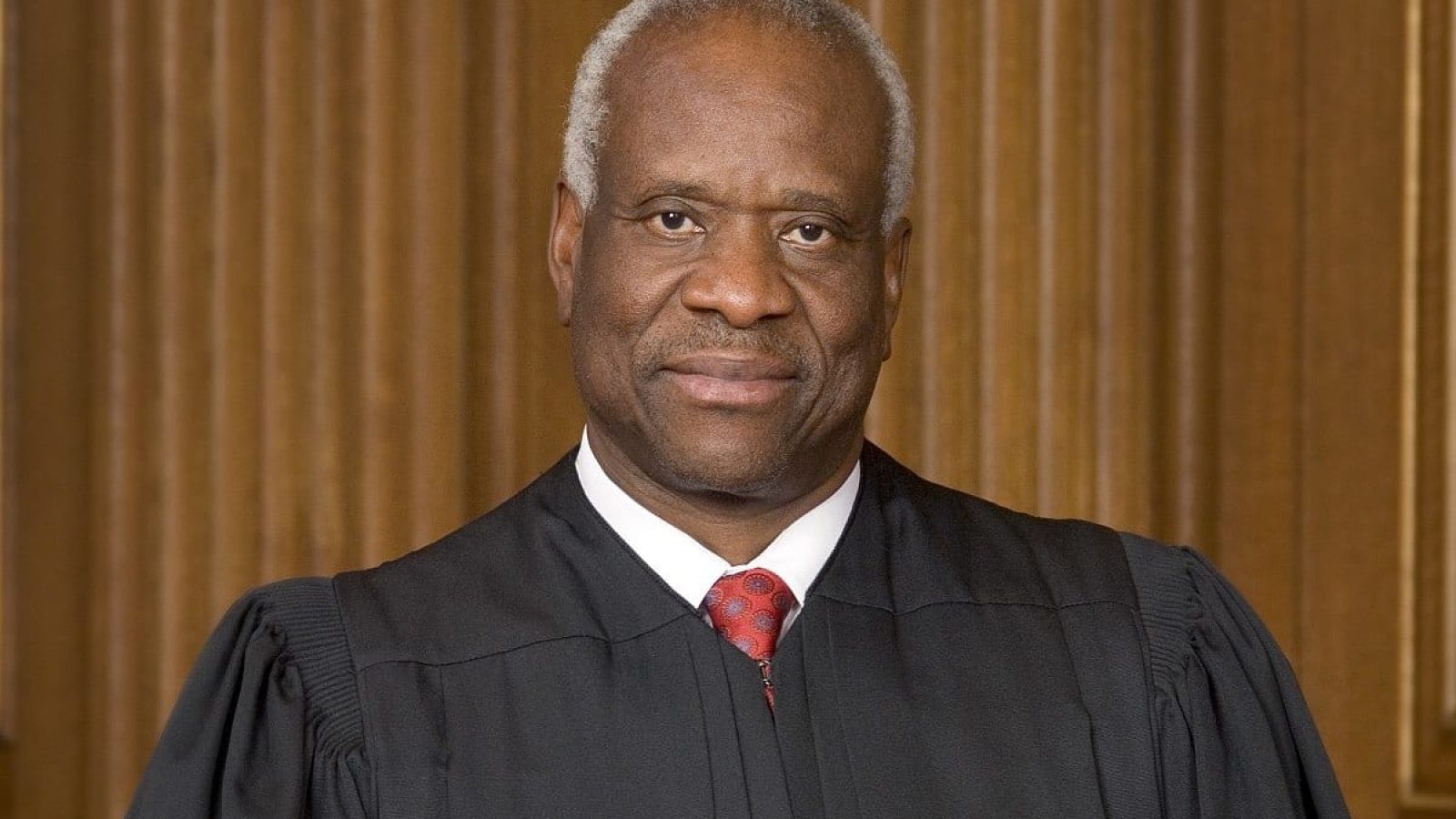The Supreme Court heard arguments this morning about the Colorado Supreme Court’s ballot ban on Trump.
During the hearing, Justice Clarence Thomas was on fire.
He grilled Colorado attorney Jason Murray — the lawyer arguing Colorado’s case to keep Trump off the state ballot before SCOTUS — pressing him to give historical examples of national candidates being kicked off the ballot.
Of course, Murray came up short. Justice Thomas crushed his arguments, while giving him a real lesson in history…
Watch the full exchange here:
CLARENCE THOMAS: “Do you have any examples” historically of leading national candidates getting kicked off the ballot?
*Colorado lawyer panics*
CLARENCE: “Do you have any examples?”
COLORADO LAWYER: “There aren’t any examples” pic.twitter.com/d30DZK4Ik0
— Benny Johnson (@bennyjohnson) February 8, 2024
Absolutely brutal takedown by Clarence Thomas (and John Roberts) of this Colorado joker trying to kick Trump off the ballot. One almost pities the poor lawyer.pic.twitter.com/EUOjCWxcf9
— Michael Knowles (@michaeljknowles) February 8, 2024
NBC News commented on Murray’s response to Justice Thomas’ questioning:
Justice Thomas points out a hole in the history of Section 3 — there are incredibly few cases where states have disqualified federal candidates, as Colorado seeks to do here.
“Do you have contemporaneous examples?” Thomas asked Murray, the attorney for Colorado’s voters.
“And by contemporaneous I mean, shortly after the adoption of the 14th Amendment, where the states disqualified national candidates — not its own candidates — but national candidates,” Thomas added.
Murray named one example from Georgia but added that there are historical differences to explain why this didn’t happen often in the 19th century.
“I think it’s not surprising that there are few examples because we didn’t have ballots in the same way back then,” he said, adding, “Candidates were either write in or they were party ballots, so the states didn’t run the ballots in the same way.”
CNN also reported:
Justice Clarence Thomas asked why there weren’t more examples of states disqualifying candidates under the 14th Amendment after the Civil War.
Jason Murray, who is arguing on behalf of the Colorado voters, pointed to one example of a disqualified candidate, saying it was not surprising there weren’t more because elections then were often decided by parties or as write-ins without ballots.
Thomas appeared skeptical, however. “There were a plethora of confederates still around, there were any number of people who would continue to either run for state offices or national offices, so it would seem — that would suggest there would at least be a few examples of national candidates being disqualified,” Thomas said.
“There were certainly national candidates disqualified by Congress refusing to seat them,” Murray said.
“I understand, but that’s not this case. States disqualify them – that’s what we’re talking about here,” Thomas responded.



Join the conversation!
Please share your thoughts about this article below. We value your opinions, and would love to see you add to the discussion!